A state of emergency has been declared and our museum will be temporarily closed starting April 25. In this post, we would like to share about the historical connections between the state of emergency and sake in the Edo period.
In the Edo period (1603-1867), most of the sake brewed in the region called Kamigata (Kyoto and its vicinity, including Nishinomiya) was sold in Edo (present-day Tokyo). In Edo City, one of the most severe emergencies was during American Commodore Matthew C. Perry’s visit to Japan at the end of the Edo period. At our museum, there is a letter describing the emergency of the arrival of Commodore Matthew C. Perry, written by a sake wholesaler in Edo to a sake brewer in Nishinomiya.
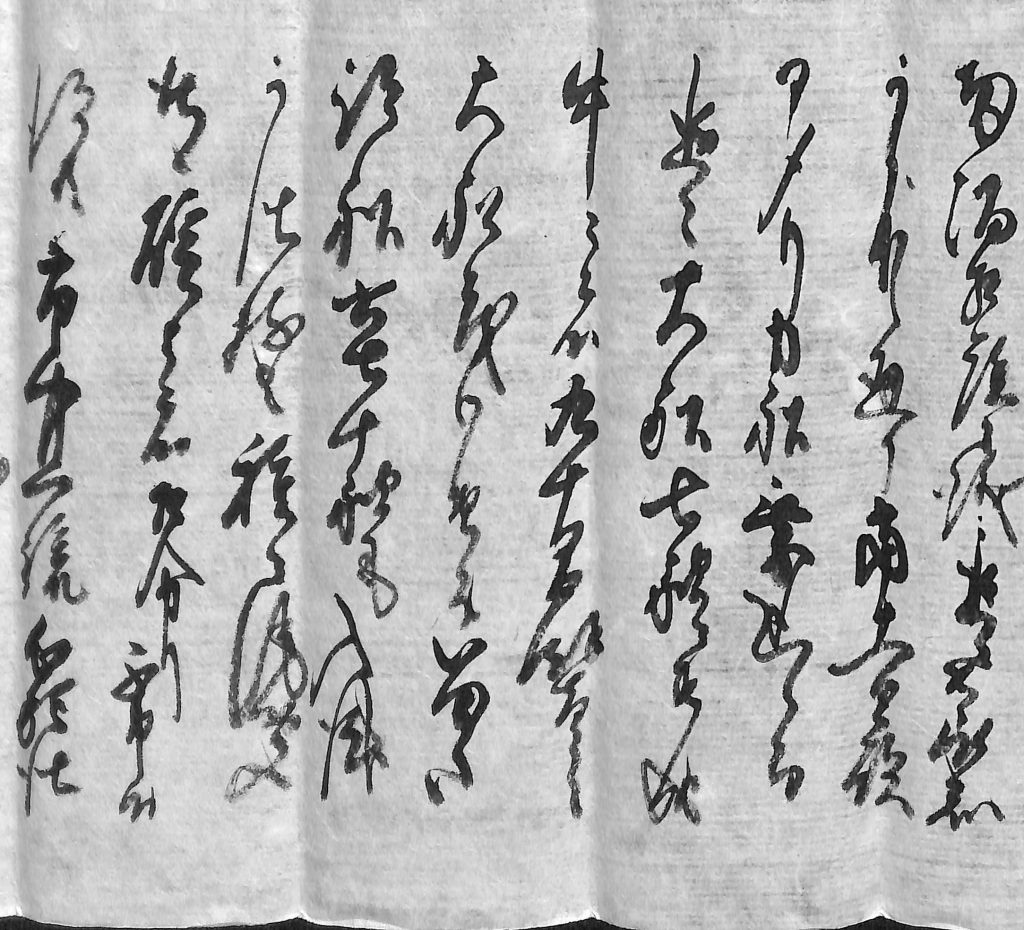
Below is a quote from the letter:
“On the night of the 11th of this month, 7 large American ships reached the port, and the size of each ship was about 163 meters. There is a rumor that 60 or 70 more ships are yet to arrive. We don’t know if that is true or not, but all the people of Edo City are afraid.”
This letter is thought to have described the second visit of Commodore Matthew C. Perry in January of 1854. It shows the Edo people’s confusion while they watched the arrival of the seven huge black ships which were way bigger than the biggest domestic ships of the time (Tarukaisen). Furthermore, there was a rumor that even more ships would arrive. Under such circumstances, people wouldn’t have been able to enjoy drinking sake. Related to that, sake sales declined during that time.
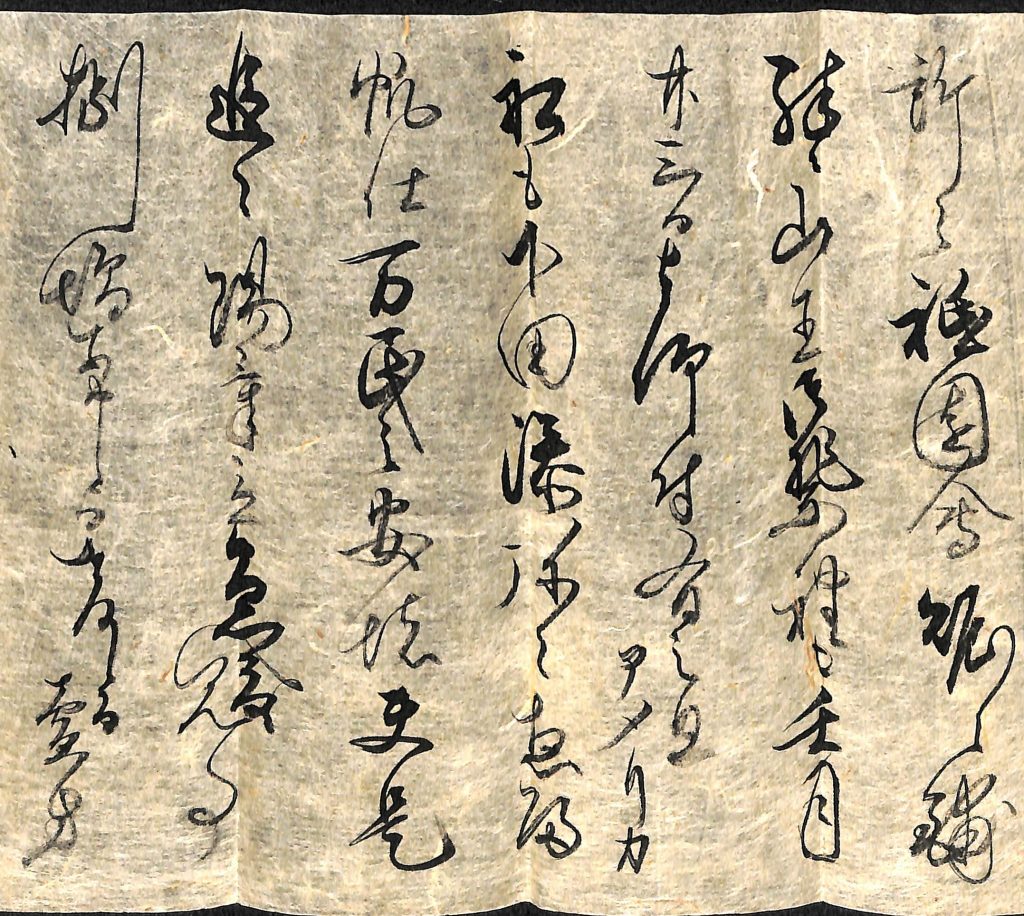
Such historical documents show that sake sells well when the world is peaceful and quiet, whereas it declines under a state of emergency. It must be the same then and now. According to another letter written by a sake wholesaler in June of 1854, the same year Commodore Matthew C. Perry visited Japan for the second time, sake sold well at the festivals held in Edo:
“Lively Gion Matsuri (Festivals) were held in many places in Edo, and the Sannō Matsuri (Festival) known as Tenka Matsuri (literally, “Festival of the Reign”) will be held on July 23rd. All the American ships have left from the Shimoda port and everyone feels at ease now. We are expecting to sell all the Kudarizake (the sake from Kyoto and its vicinity) at the festival.”
The letter shows that the life of the people in Edo went back to normal again after the foreign ships had left, and the people were able to enjoy the festivals.
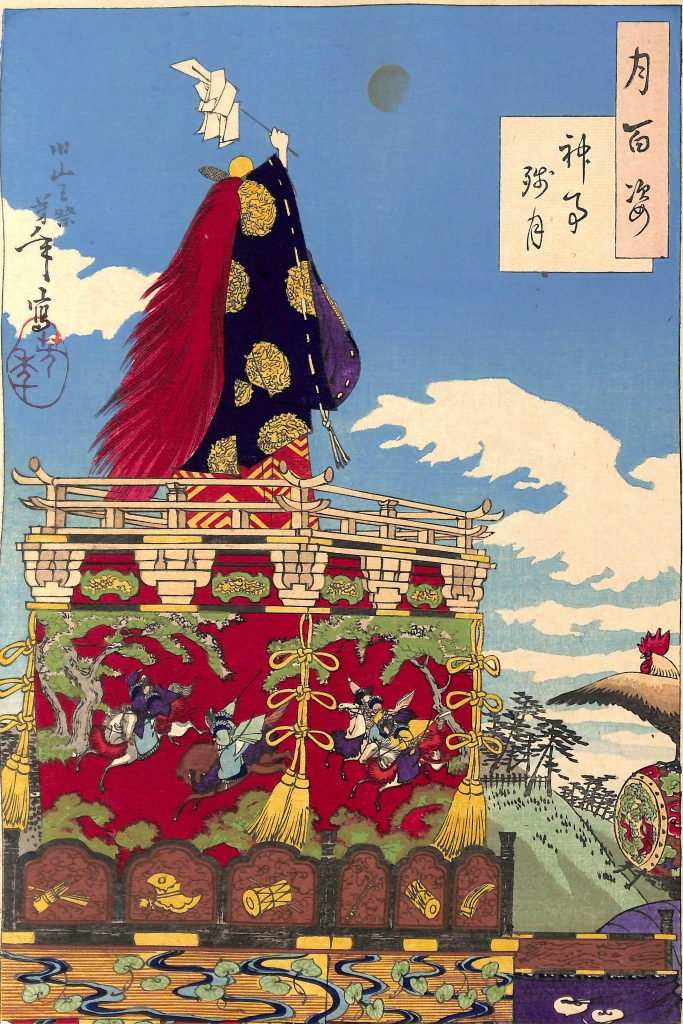
– Scene of Sannō Matsuri (Festival) –
We hope the COVID-19 pandemic will end soon, as the state of emergency ended in the Edo period, so that people can once again enjoy sake together, and we will be able to safely welcome visitors to our museum again. Please visit us when the Sake Museum is open again.

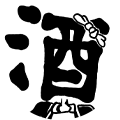

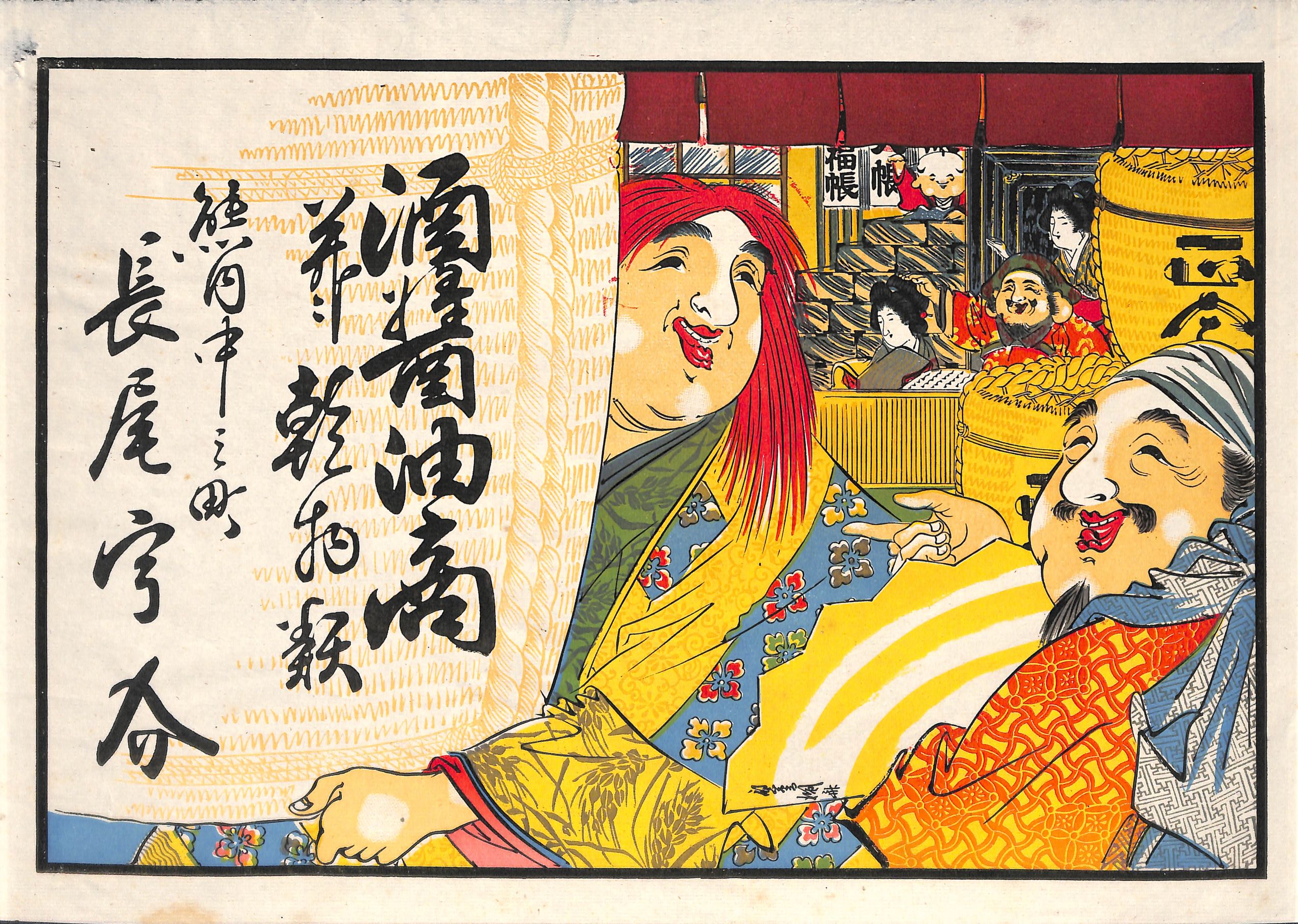
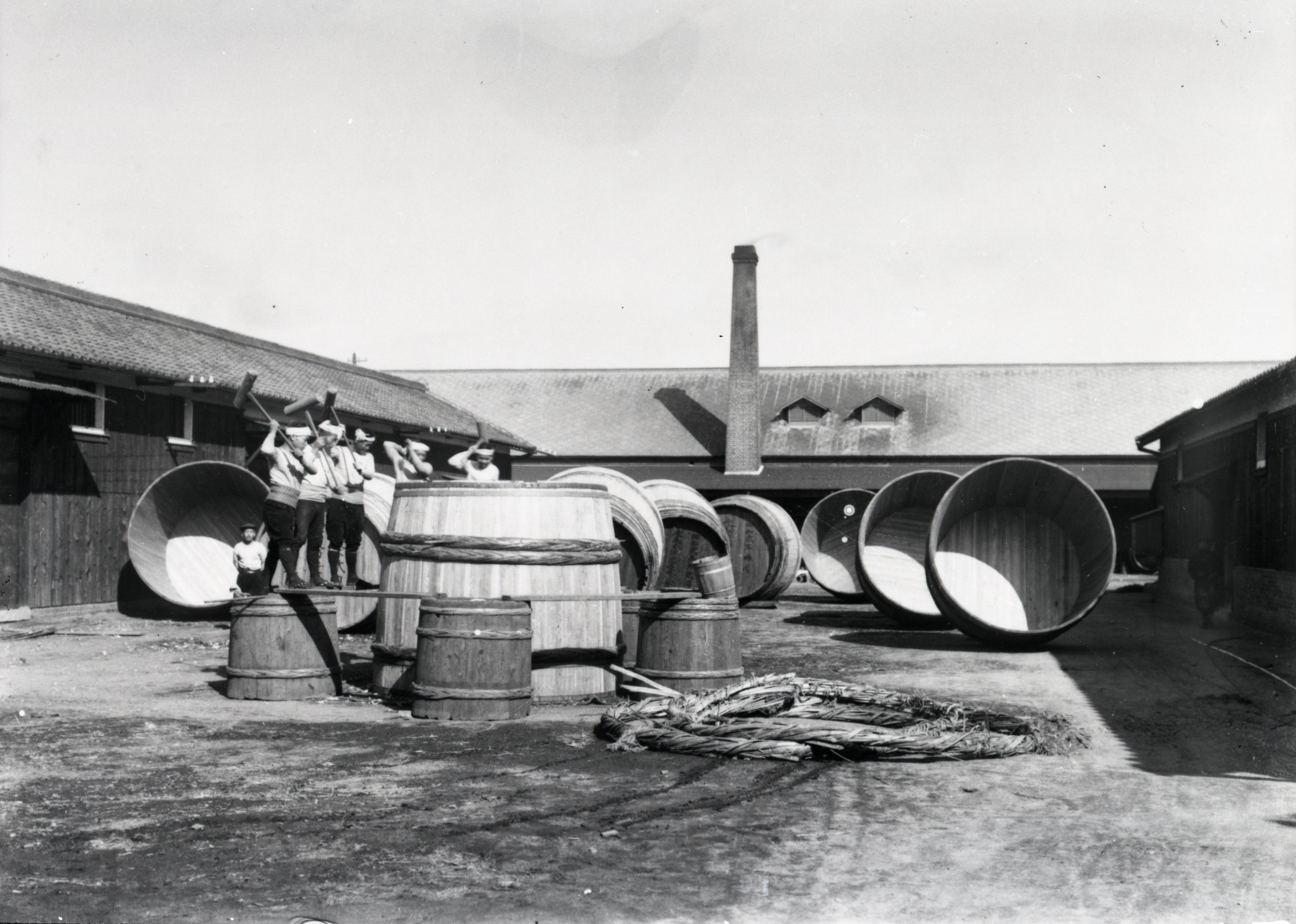
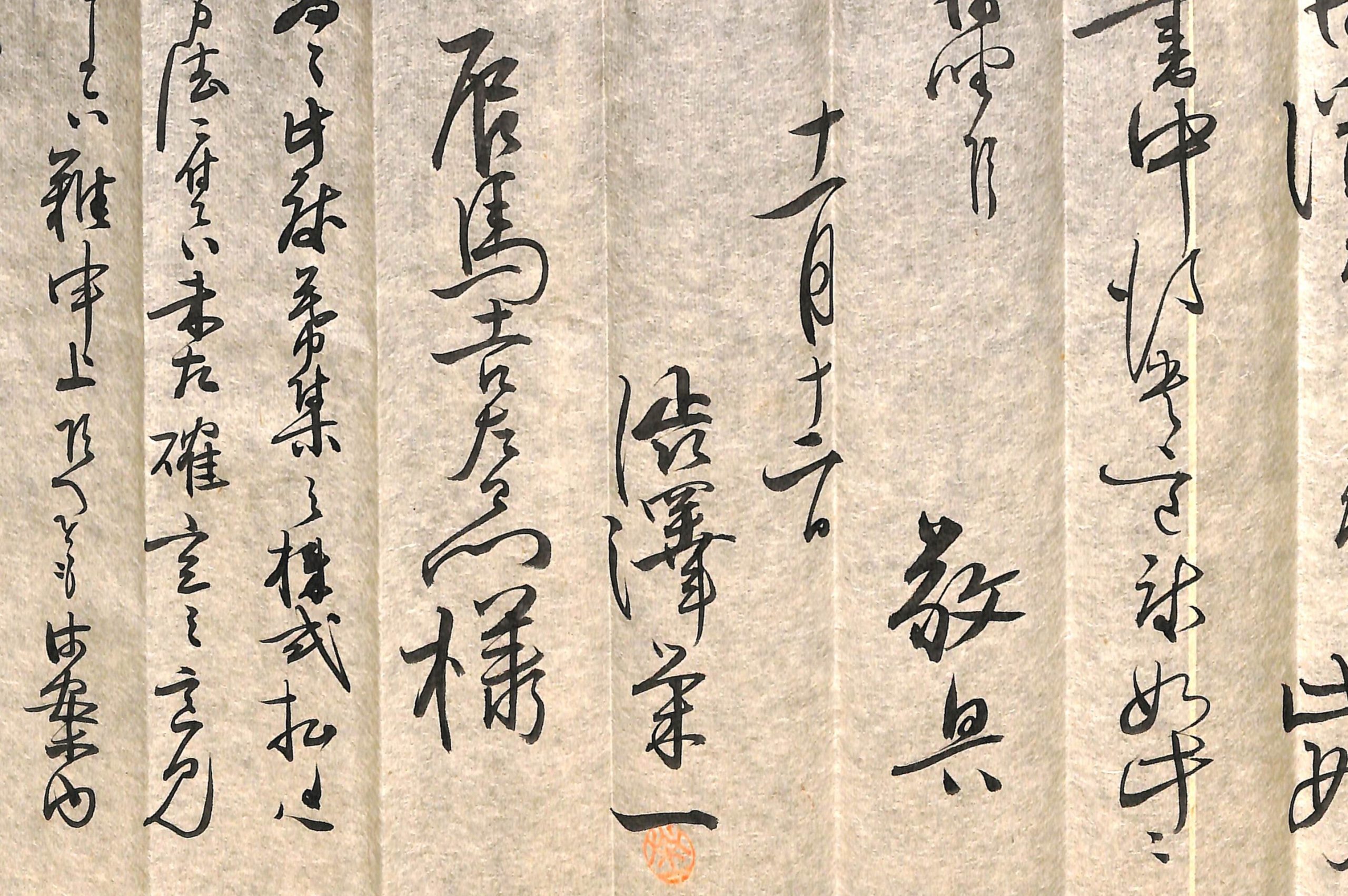
桜書100-宮人観花図-高倉在孝.jpg)


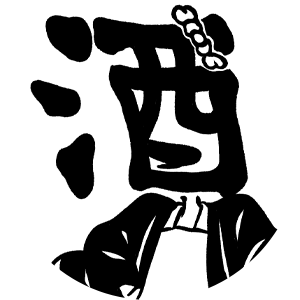
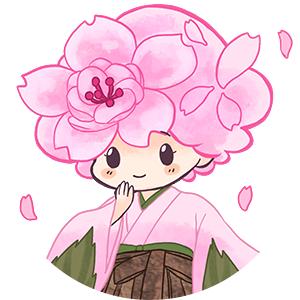
It's amazing how experience accumulates!